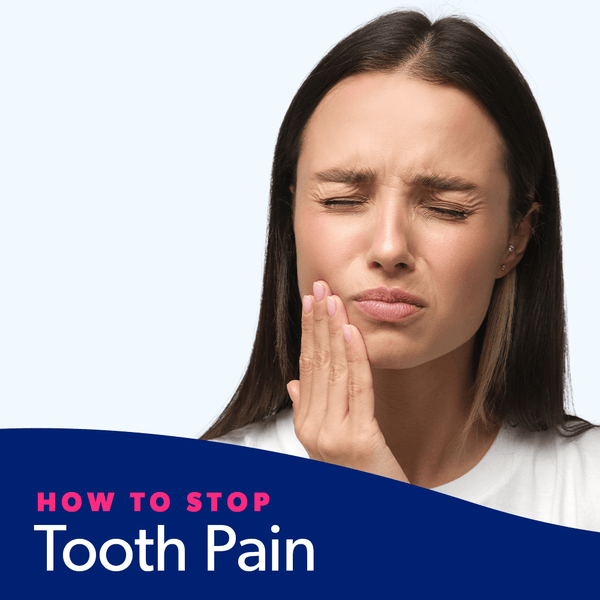
How to Stop Tooth Pain
When you have a toothache, it's hard to think of anything else. Toothaches can lead to throbbing, swollen gums and nagging, sharp pains. Increased sensitivity can make mealtime a nightmare. You may even find it difficult to speak when one or several of your teeth start hurting. When you're suffering like this, all you can think about is how to achieve some toothache relief.
Thankfully, you can try ways to treat a toothache from the comfort of your home. And, with a bit of extra effort, you can even take action to reduce your chances of experiencing a toothache before one even begins. Let's take a closer look at the causes of tooth pain and some tips on how to calm an irritated tooth.
What Causes Tooth Pain?
To understand how to stop tooth pain, you need to know the cause behind it. Discovering why your tooth is hurting is the first step in finding the right way to get some relief. Here are some of the most common reasons people experience tooth pain. One or some of these might explain your tooth pain, too. Once you determine that, you'll be able to take the right step toward relieving the discomfort.
Aligners and Braces
One of the leading causes of tooth pain is orthodontic treatment. Orthodontists use methods like clear aligners and braces to straighten their patients' smiles and fix various dental issues. If you're currently wearing aligners or braces, you could be experiencing tooth pain and tooth tenderness as a result.
Braces and aligners slowly shift your teeth into straighter positions, which can lead to discomfort, especially when you change trays or have your braces adjusted. As these devices stretch your teeth's ligaments, you could experience toothaches and tooth tenderness when you eat or talk. Your teeth have feelings, too, and it's typical for them to start hurting at various phases of your orthodontic treatment.
Retainers
Retainers are an essential part of the orthodontic process. After you finish wearing braces or aligners, your orthodontist or aligner company will give you retainers to wear to keep your teeth in their new, straight positions. When you first get a retainer, it should fit over your teeth without any issues. But be careful, because it's easy for this pain-free fit to change into one that can cause some discomfort.
Hot water can melt and warp the soft plastic of your retainer. Damage from dropping or crushing can alter your retainer's shape. And if you forget to wear your retainer for a while, your teeth could shift into a different position. All these instances can lead to a poor fit from your retainer, causing tooth pain.
Mouth Guards
Mouth guards share some characteristics with retainers, making them vulnerable to some of the same issues. Mouth guards fit over your teeth to protect them from trauma during sports and various physical activities. They fit a bit looser than an orthodontic retainer, but they should still be tight enough to stay in place with minimal movement.
If you get a mouth guard that is too big or too small, you can experience some tooth pain. A loose mouth guard will move around, bumping into your teeth and putting uneven pressure on them. A tight mouth guard can put too much pressure on your teeth, creating an uncomfortable situation. Find the right size mouth guard and be sure to take care of it.
Dentures
Dentures can help enhance your quality of life by returning confidence to your smile and letting you eat many of your favorite foods again. Good-fitting dentures will feel comfortable in your mouth after a brief adjustment period. But poor-fitting dentures can lead to painful results, including tooth pain if you have partial dentures.
Loose partial dentures can trap food particles, leading to plaque buildup and eventual tooth pain. They can also slide around and bump into your teeth. Keep your dentures clean and make sure they fit well to avoid these painful issues.
Crowns and Implants
If you have crowns or implants, you know how crucial they are to your dental health. You may have had severe tooth pain from cavities or injuries, and receiving crowns or implants was your way of experiencing relief and a confident smile. But if you're experiencing pain from your crowns or implants, you should reach out to your dentist right away.
Loose crowns can open the damaged tooth below to uncomfortable sensations from hot or cold food temperatures and sugary, acidic foods. Poor oral hygiene can also contribute to tooth pain if you wear crowns or implants. You could even experience a condition called peri-implantitis, which involves inflammation and bone loss in the areas around your implants. In some cases, you can be allergic to the metal used in your implant, leading to pain and discomfort that you should have your dentist address as soon as possible.
Poor Oral Hygiene
You've probably noticed a common thread in the previous sections — poor oral hygiene can contribute to tooth pain. Your dentist isn't joking when they say you need to take care of your teeth. Here are some painful results that could occur if you lack a proper dental hygiene routine.
- Plaque buildup: Plaque is always trying to accumulate in your mouth, which is why you need to brush and floss regularly. The bacteria in plaque release acids that can damage your tooth enamel and lead to cavities.
- Tartar: Left unchecked, plaque can calcify and turn into tartar. Tartar is a hard, yellowish substance that clings to your teeth and can lead to tooth pain and other dental issues.
- Gingivitis: Gingivitis is an early form of gum disease caused by plaque below the gumline. It can lead to inflamed gums, bleeding and tooth pain.
- Periodontitis: Periodontitis is an advanced form of gum disease that can lead to loose teeth, tooth loss and intense tooth pain. It's a severe issue that can be detrimental to your oral health.
5 Tips to Relieve Tooth Pain
Everyone's teeth can hurt for different reasons. The good news is that many people experience tooth pain, so plenty of remedies exist that you can try right now using items already in your home. Here are five tips that could help you experience some relief from your nagging tooth pain.
1. Practice Good Oral Hygiene
The first way you can reduce and even avoid tooth pain is by practicing good oral hygiene. The CDC recommends brushing twice and flossing once per day to keep your teeth healthy. You should also visit your dentist regularly for professional cleanings and updates on your dental health progress. Make oral health even easier and more effective by adding the following products to your routine.
- WhiteFoam: EverSmile's WhiteFoam makes cleaning your clear aligners and retainers easy. Pump the hydrogen peroxide solution into your trays and insert them over your teeth. That's all there is to it! The WhiteFoam will clean your trays as you wear them while whitening your teeth and freshening your breath.
- AlignerFresh: Get many of the same benefits as WhiteFoam in a more portable package when you try AlignerFresh from EverSmile. AlignerFresh fits in your pocket, purse or travel bag to help you keep your aligners clean, even when you're on the go. Its convenient spray top and durable construction let you transport it with confidence and use it with ease.
- FreshDent: Keep your full or partial dentures cleaner with EverSmile's FreshDent denture cleaning product. FreshDent is the only wearable denture cleaner, and it can even improve your denture adhesive's effectiveness to enhance your oral health even more. Cleaning dentures can be a hassle, but you can simplify the process with FreshDent.
- OrthoFoam: Cleaning your braces can be confusing and frustrating. Bacteria and food particles might stick to your brackets, and it can be hard to know the best way to keep your braces clean. Make the process more straightforward by using OrthoFoam from EverSmile. OrthoFoam's cleaning power reaches under and over your braces' components for fresher, cleaner and whiter teeth. Use it with a brush, rinse with it or pump it into your clear aligner trays.
- OmniFoam: Your crowns, implants and bridges demand the same oral care as your natural teeth. Fight off peri-implantitis with the help of EverSmile's OmniFoam. OmniFoam fights off biofilm from your implants, bridges and crowns to keep those areas healthier. Use it while brushing, rinsing or with dental trays.
- SportsFresh: Mouth guards are essential for keeping your teeth safe during physical activities. Keep your mouth guard smelling fresh so you want to use it with SportsFresh by EverSmile. Pump it into your mouth guard and let the cleaner get to work!
- WhitenFresh: Everyone can enjoy the whitening and freshening benefits of EverSmile's WhitenFresh. Spray it on your teeth and tongue, and use your tongue to spread it evenly over your teeth. You can use it up to six times per day, so it's perfect for an on-the-go boost in your oral hygiene and confidence.
2. Use OrthoChews
You may know from experience that aligners can cause tooth pain, especially in the days after putting in a new set of trays. Those troubling times can be distracting, and you may be looking for something to help relieve the pain. That's where OrthoChews from EverSmile come into play.
Each package of OrthoChews comes with two sticks.
- The hard orange chew: This stick is for helping seat your new aligners into their positions to aid in teeth movement and speed up the painful adjustment period. Pop your new aligners in and bite down on the orange chew for a while to help put your aligners into place.
- The soft blue chew: The soft blue chew is perfect for problem areas of your aligners where your teeth are sorest. Chew gently and consistently on the blue stick in those areas until you experience relief.
3. Rinse Your Mouth With Saltwater
When tooth pain strikes, rinsing your mouth with saltwater is one of the easiest, first-line treatments you can try. Saltwater is a disinfectant, and rinsing with it can help loosen stubborn food particles and other debris that could be stuck between your teeth. Saltwater is also effective at reducing inflammation and aiding the healing process of various oral wounds.
Mix roughly a half teaspoon of table salt into a glass of warm water until the salt dissolves. Then, use it as a mouthwash, swishing it around and concentrating your efforts on the painful area. See if this helps lower your pain.
4. Apply a Cold Compress
If you've ever sprained a limb or burned yourself, your caretaker may have given you a cold pack to hold to the injured area to help the swelling go down and reduce the pain. You can use this same method to help reduce the pain and inflammation of a sore tooth, too.
Take an ice pack, bag of ice or bag of frozen vegetables and wrap it in a towel to make a cold compress. Hold it to your mouth near your irritated tooth. You should start to feel some relief from the pain, and any present swelling should go down, giving you some much-needed relief.
5. Try Natural Remedies
You can try a non-steroidal anti-inflammatory medication like ibuprofen to reduce the pain. But if you'd rather take a more natural route, try the following remedies that use ingredients you may already have in your home pantry.
- Clove oil: Throughout history, people have used clove to treat toothaches thanks to its natural numbing properties. Clove contains eugenol, which is a natural antiseptic. Apply a small amount of clove oil to a cotton ball and dab it on your hurting tooth. You can also mix a drop of clove oil into a glass of water and use the mixture as a mouthwash.
- Peppermint tea bag: Peppermint's natural properties can help numb pain and provide some relief to irritated gums. The next time you drink peppermint tea, save the teabag and let it cool off a bit before holding it to the affected area. You could also put the teabag in the freezer for a few minutes to enhance the cooling feeling of peppermint if you like.
- Vanilla extract: Vanilla extract can be effective in reducing your tooth pain. This common baking ingredient contains alcohol, which can help numb the pain. Vanilla is also a proven antioxidant that can aid in your mouth's healing process. Dab some vanilla extract on your finger or a cotton ball and apply it to the painful area a few times per day.
Shop EverSmile Products and Enhance Your Oral Hygiene Today
Take control of tooth pain and stop it in its tracks before it happens with the help of EverSmile's full line of products. We design our products to make oral hygiene easier and more convenient so your dental health works for you, instead of the other way around. Take control of your oral hygiene today and enjoy the benefits of a cleaner mouth with EverSmile.
Contact us today for more information about how we can upgrade your oral hygiene routine. And be sure to read our blog so you can enjoy the latest tips and information on how to keep a cleaner mouth, whatever your dental situation. Take your mouth's health to the next level today with EverSmile!
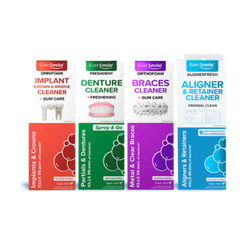
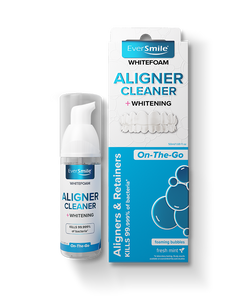
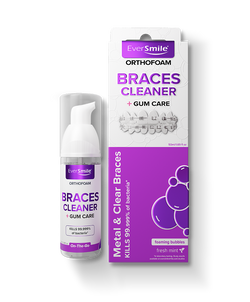
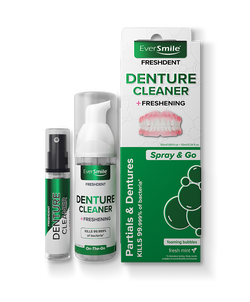
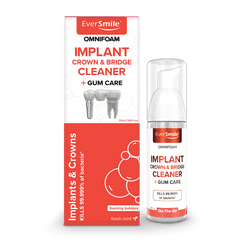
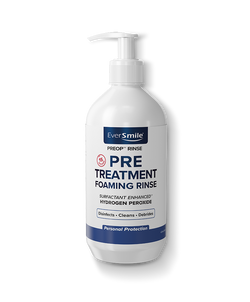

Post a Comment!